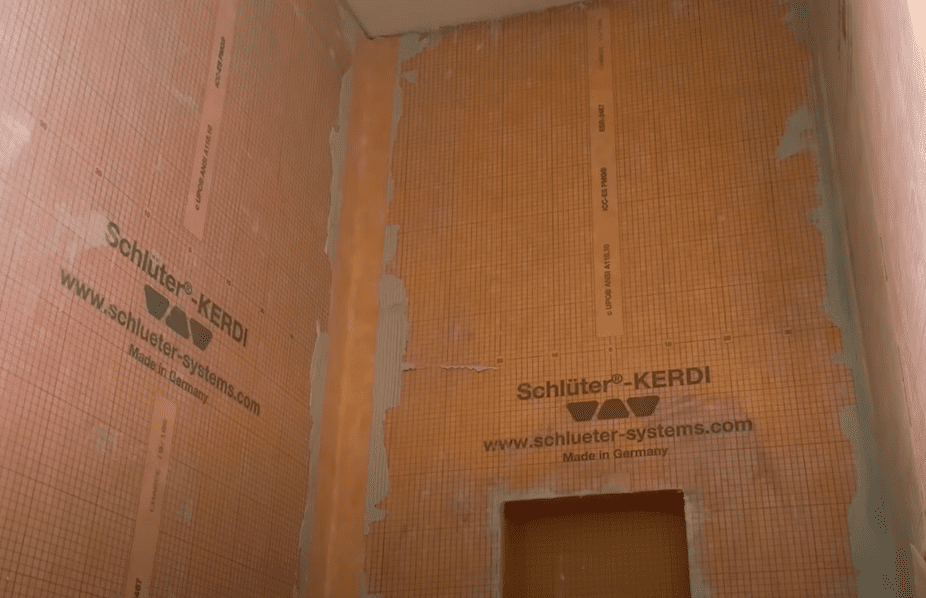
Kerdi Membrane Installation is typically the first step in the Schluter Kerdi Shower Kit System installation process. Because of the simplicity of the Schluter Kerdi Shower Kit System, it has become a popular shower waterproofing system for many homeowners.
To install Kerdi Membrane, start by applying Schulter ALL-SET mortar (or similar) to your cement board substrate using a 1/4” x 3/16” V-Notch Trowel. Cut the Kerdi membrane to size using a utility knife or scissors. Press the Kerdi Membrane into the Thinset Mortar with firm, even pressure to achieve full mortar coverage. Remove any excess thinset mortar from underneath the membrane using the flat side of a trowel or a putty-knife.
This article will outline every step in the Kerdi Membrane Installation process to ensure that your shower walls are completely waterproof.
What is Kerdi Membrane?

Schluter Kerdi membrane is a flexible, sheet applied waterproofing and vapor-retarder membrane that is typically applied to shower walls, bathtub surrounds, and other tile applications where moisture will be present. Kerdi Membrane is designed for direct tile application.
Schluter Kerdi membrane is manufactured with a polyethylene center with non-woven polypropylene on both sides which allow the membrane to be anchored to the wall with thinset. Kerdi membrane is 8 Mils in thickness and comes in rolls that are 3′-3″ in width.
For more information on the Kerdi Membrane, check out the Schulter Systems website linked here.
How to Install Kerdi Membrane
Before Kerdi membrane can be installed, you need to have a properly prepared substrate. Typically, cement board is the best substrate for Kerdi Membrane installation on walls.
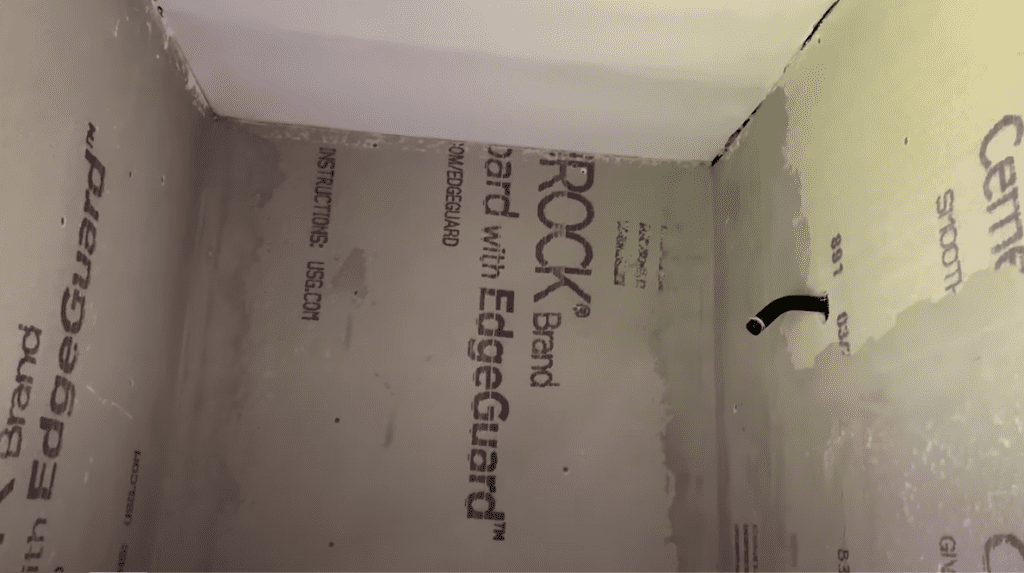
For more information about how to install cement board on walls, check out my “How to Install Cement Board on Walls” blog linked here.
Once your substrate is installed, ensure that it is clean and free of any dust or debris that may impact the Kerdi Membrane installation.
Next, cut the Kerdi Membrane to size using scissors or a utility knife. Typically, Kerdi Membrane will extend from the subfloor all the way to the ceiling. For showers or bathtub surrounds, Kerdi Membrane should extend to the height of the showerhead at a minimum.
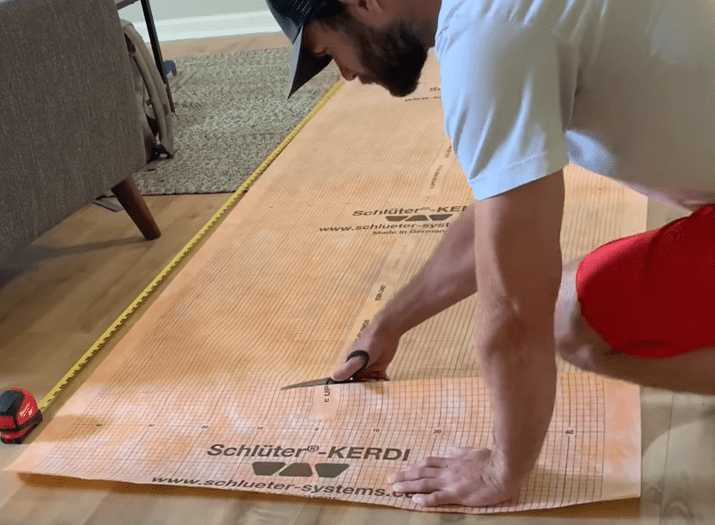
Once the Kerdi Membrane is cut to size, apply thinset mortar to the walls/substrate using a 1/4” x 3/16” V-notch trowel. Apply thinset mortar to the substrate using “directional troweling” – meaning that all trowel marks run in the same direction.
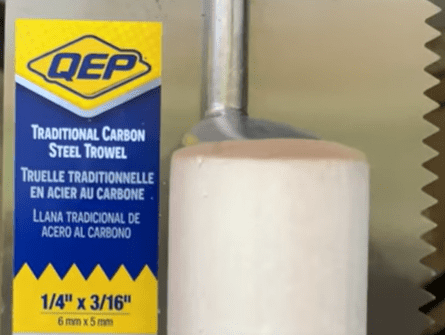
It is recommended that Schulter ALL-SET mortar be used in order to maintain the Schluter Warranty and ensure a successful installation. Schulter-SET, Schluter-FAST-SET, or an unmodified thinset mortar can also be used.

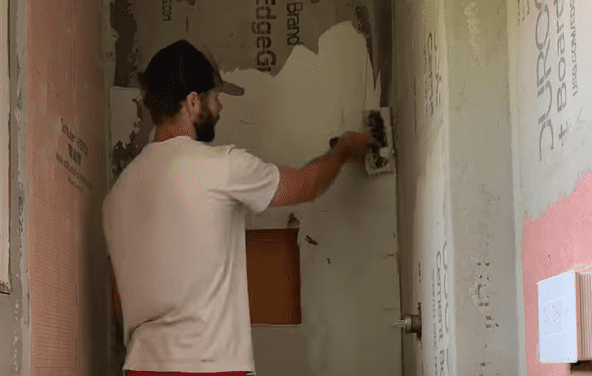
Once a sufficient amount of thinset mortar has been applied to the substrate, press the Kerdi Membrane into the mortar, fully embedding the membrane into the thinset.
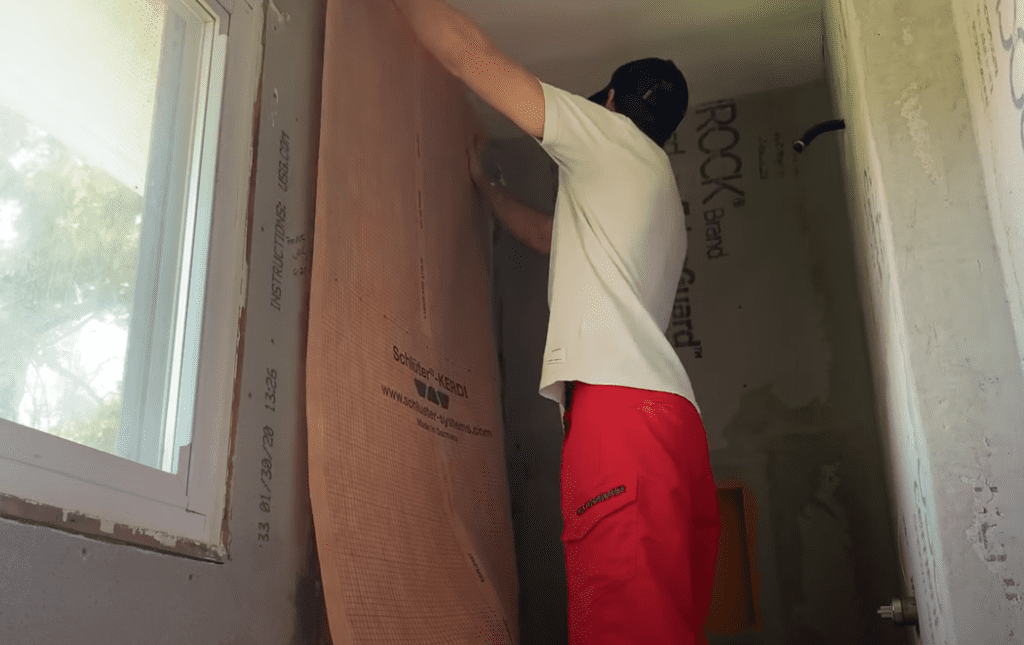
Use the flat side of a trowel to apply even pressure to the entire Kerdi membrane, ensuring that the membrane is fully pressed into the bond coat.
Remove any excess mortar or air bubbles from beneath the Kerdi Membrane by “sweeping” them to the side with the flat side of the trowel.
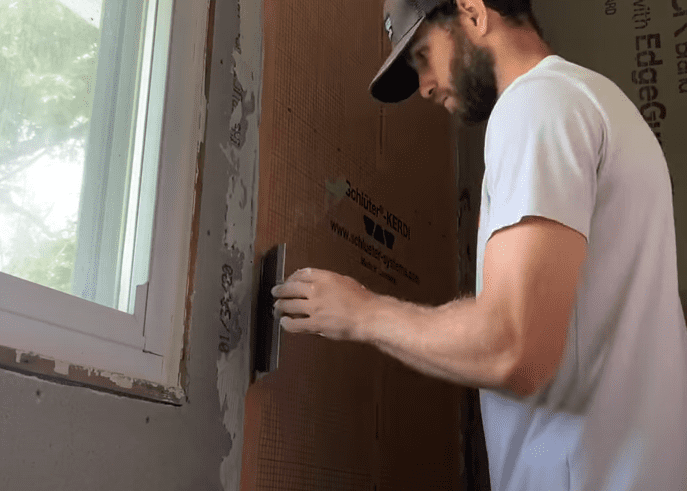
Continue to apply Kerdi Membrane in this manner for all walls that require waterproofing.
Next Steps
Once the kerdi membrane has been installed on each wall, the joints and seams will need to be sealed using Kerdi-Band, Kerdi-Kereck, etc.
For a detailed explanation on how to apply seal Kedi Membrane seams and joints with Kerdi-Band and Kerdi-Kereck, check out my “How to waterproof Kerdi Joints” Ariticle linked here.
Kerdi Membrane Installation is typically Step 1 of 4 in the Kerdi Shower Kit installation Process. The other steps required for a successful installation are listed below.
- Step 1: Install Kerdi Membrane
- Step 2: Install Kerdi Shower Pan
- Step 3: Install Kerdi Shower Curb
- Step 4: Waterproof all intersections and joints
I have a dedicated article for each step in the Kerdi Shower Kit Installation Project that will help you learn everything you need for a successful installation. If you are more of a visual learner, you can check out my step-by-step Kerdi Shower Kit Installation Youtube Video below:
Thanks so much for checking out ATImprovements! If you learned something from this project, you might also like these other DIY Projects:
How to Install Hexagon Floor Tiles: How to Install Hexagon Floor Tile – AT Improvements
Schluter Ditra VS Cement Board (Which is better?): Schluter Ditra VS Cement Board (Which is better?) – AT Improvements
To see the full bathroom transformation time lapse, click here!
Thanks!
DISCLAIMER: This is a reference guide only. Links included in this article might be affiliate links. If you purchase a product or service with the links that I provide I may receive a small commission. There is no additional charge to you! Thank you for supporting ATimprovements so I can continue to provide you with free content each week!
